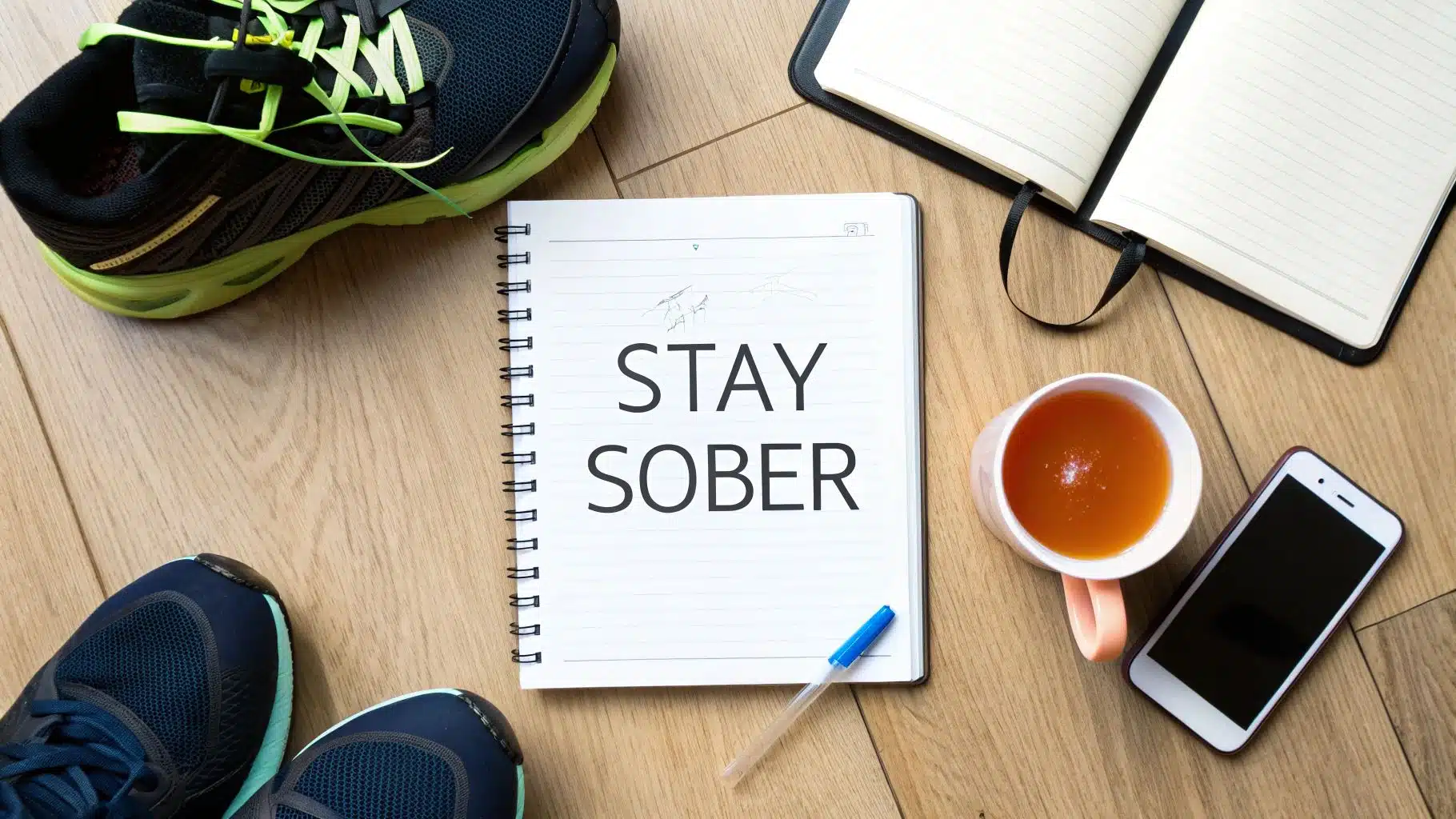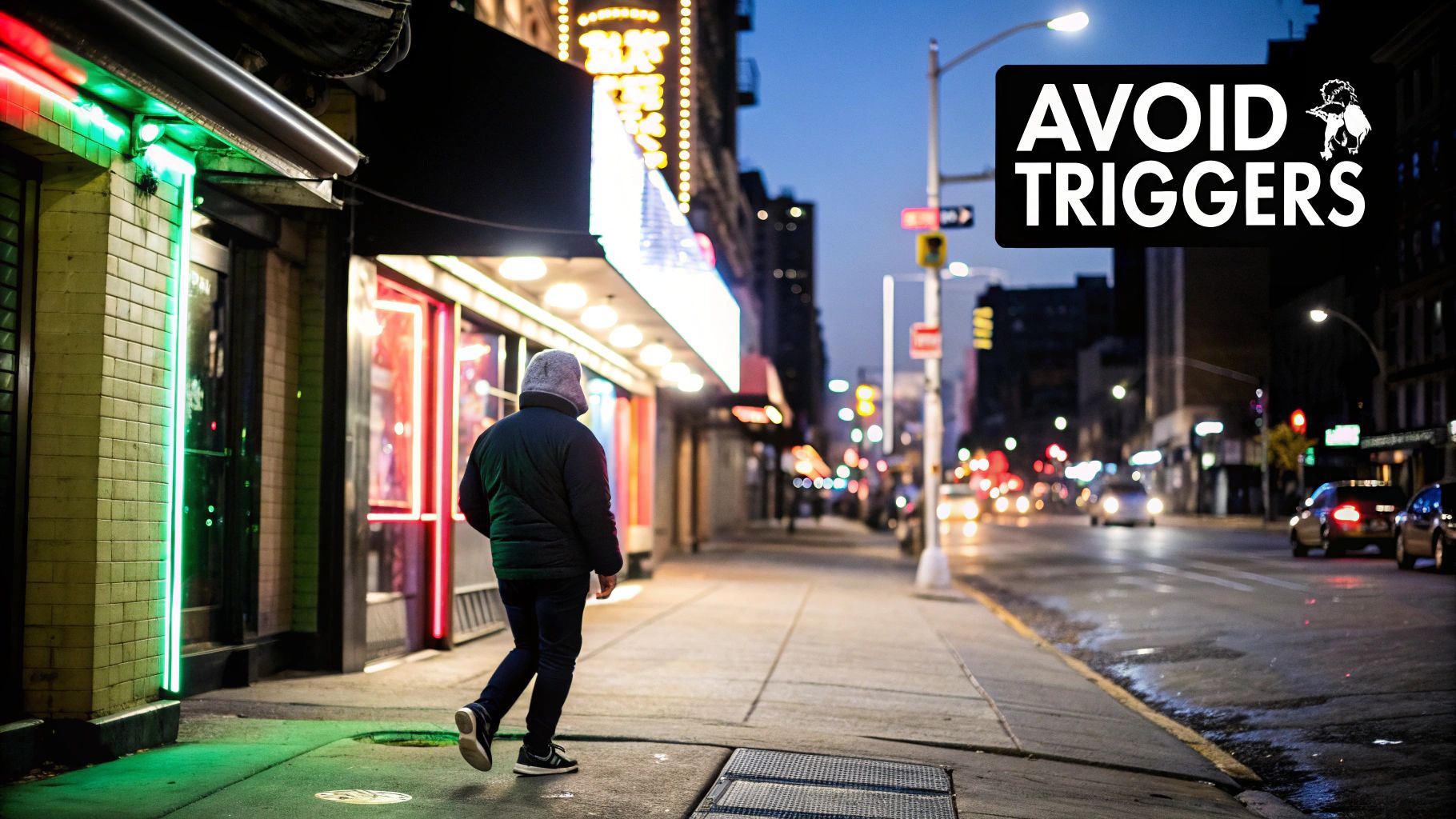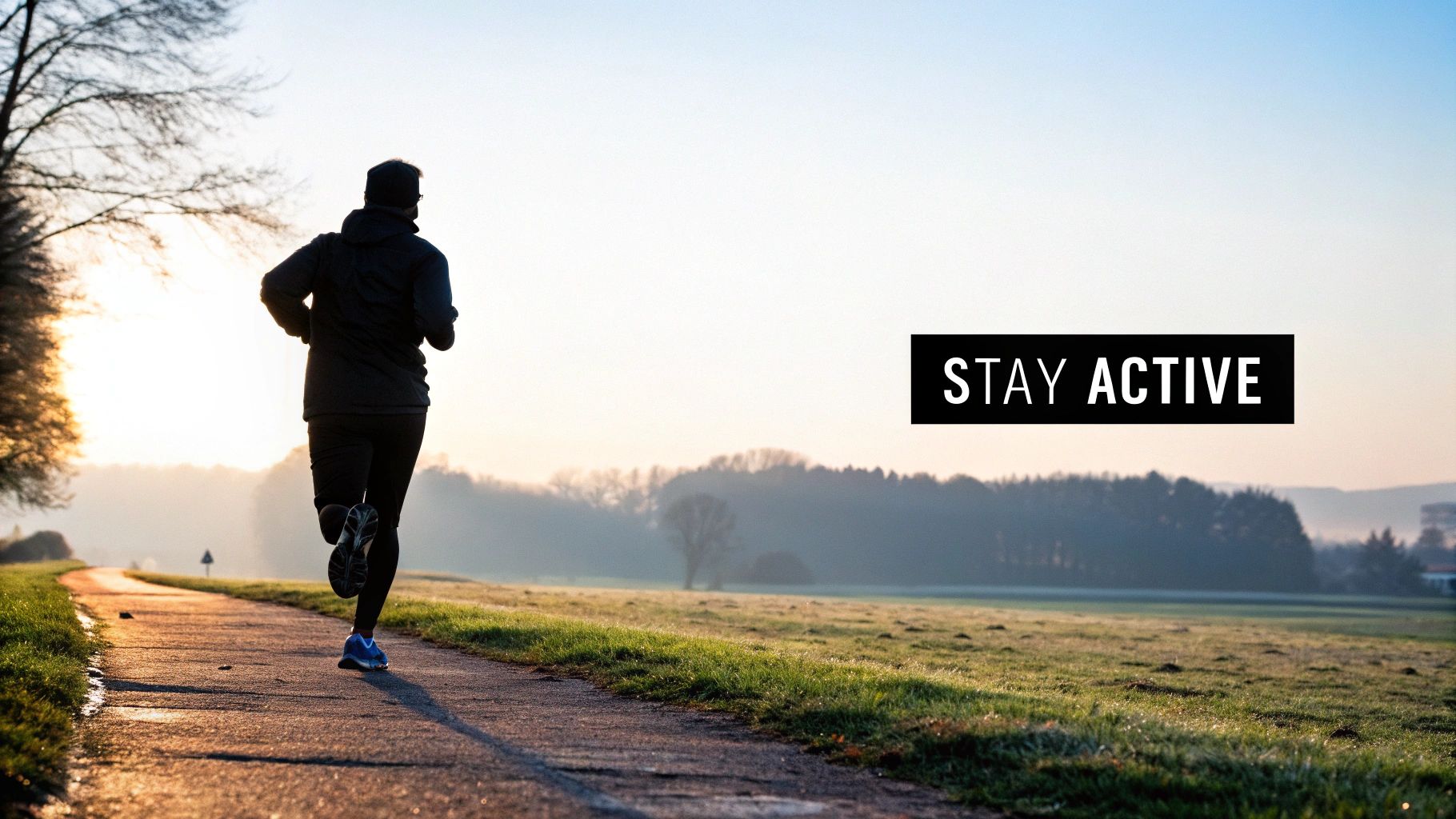
The journey to recovery is a testament to strength and resilience, but maintaining sobriety requires a proactive, strategic approach. Relapse is not a sign of failure, but rather an indication that the current recovery plan needs adjustment. Understanding and implementing effective relapse prevention strategies is the key to navigating the challenges of long-term sobriety. This guide moves beyond generic advice to provide a comprehensive roundup of actionable, evidence-based tips designed to build a durable foundation for your recovery. We will explore practical techniques, from identifying personal triggers to cultivating new, meaningful life activities, that empower you to not just survive, but thrive.
Whether you are in the early stages of recovery or have been sober for years, these insights will equip you with the tools needed to protect your progress and build a fulfilling, substance-free life. This listicle offers a deep dive into specific relapse prevention tips that you can integrate into your daily routine immediately. You will learn how to build a robust support network, manage stress without substances, and develop a structured lifestyle conducive to lasting wellness. If you ever feel overwhelmed and need immediate support, remember that help is just a phone call away. Resources like the SAMHSA National Helpline are available 24/7 to provide confidential guidance and connect you with the support you need.
1. Develop a Strong Support Network
One of the most foundational relapse prevention tips is to intentionally build and actively maintain a strong, reliable support network. Sobriety is not a journey meant to be walked alone. A robust support system acts as a crucial safety net, providing accountability, encouragement, and a sounding board during the inevitable challenges of recovery. This network can include a diverse mix of people, from family and trusted friends to sponsors, therapists, and peers who share similar experiences.
The core principle behind this strategy, heavily emphasized by organizations like Alcoholics Anonymous (AA), is that connection counteracts the isolation that often fuels substance use. When you feel a craving or face a high-risk situation, having people to call who understand your struggle can be the difference between a lapse and continued sobriety. The value of these connections is well-documented and forms a cornerstone of modern addiction treatment. You can discover more about the pivotal role of these relationships by exploring the importance of support systems in recovery on addictionhelplineamerica.com.
How to Build Your Network
Actively cultivating your support system requires deliberate effort. It’s not just about having people around; it’s about fostering genuine, supportive connections.
- Diversify Your Support: Don’t rely on just one person. A strong network includes different types of support. For example, a therapist offers clinical guidance, while a sponsor from a 12-step program like AA or a peer from a SMART Recovery meeting provides lived experience and mutual understanding.
- Create a Crisis Call List: Identify 3-5 people you can contact without hesitation during a moment of crisis. Keep their numbers easily accessible.
- Be Honest and Vulnerable: True support thrives on honesty. Be open about your struggles with trusted members of your network. This transparency builds stronger bonds and allows them to provide the specific help you need.
- Engage Consistently: Don’t wait for a crisis to connect. Schedule regular check-ins, attend meetings consistently, and make plans with sober friends even when you feel strong. This proactive engagement keeps your network active and reliable.
2. Identify and Avoid High-Risk Situations
A critical aspect of any effective relapse prevention plan is learning to recognize and manage high-risk situations. These are the specific people, places, things, and feelings that can trigger cravings and increase the likelihood of returning to substance use. Proactively identifying these triggers allows you to develop strategies to either avoid them entirely or navigate them safely, significantly reducing your vulnerability to relapse.

This approach is a cornerstone of Relapse Prevention Therapy, developed by Dr. Alan Marlatt, and is heavily utilized in Cognitive Behavioral Therapy (CBT). The goal is to interrupt the automatic chain of events that leads from a trigger to a lapse. For instance, this could mean avoiding bars or social events centered around drinking, changing your route to work to bypass old drug-buying spots, or limiting contact with friends who are still actively using. The Substance Abuse and Mental Health Services Administration (SAMHSA) provides extensive resources on Coping with Triggers and Cravings that underscore this strategy’s importance.
How to Manage Your Triggers
Building awareness and creating a plan are your best defenses against high-risk situations. It’s about being prepared, not just reactive.
- Create a Trigger Inventory: Make a detailed list of your personal triggers. Categorize them into people, places, feelings (like stress, loneliness, or boredom), and times of day. Assign a risk level (low, medium, high) to each one to prioritize what to avoid.
- Develop an Exit Strategy: For situations you can’t avoid, always have a pre-planned exit strategy. This could be a simple excuse to leave an event early or having a sober friend you can call to come pick you up.
- Practice Saying ‘No’: Role-play or rehearse saying “no” to invitations that put your sobriety at risk. Having a firm but polite refusal ready makes it easier to use in the moment without feeling pressured.
- Review and Update Regularly: Recovery is dynamic, and your triggers may change over time. Schedule a monthly or quarterly review of your trigger list and adjust your avoidance and coping strategies accordingly.
3. Practice Stress Management and Coping Skills
A critical component of any effective relapse prevention plan is the ability to manage stress and handle life’s challenges without turning to substances. Learning and regularly practicing healthy coping skills provides a constructive outlet for difficult emotions and stressful situations, which are often significant relapse triggers. Instead of using substances to numb or escape, these techniques build resilience and empower you to navigate adversity with clarity and control.

This approach is central to evidence-based programs like Mindfulness-Based Relapse Prevention (MBRP), which integrate mindfulness practices pioneered by figures like Dr. Jon Kabat-Zinn. The goal is to develop a proactive, rather than reactive, relationship with stress. By having a toolkit of strategies ready, you can address stressors as they arise, preventing them from escalating into a full-blown crisis or craving. This is one of the most empowering relapse prevention tips because it puts you in charge of your emotional responses.
How to Implement Stress Management Techniques
Building effective stress management habits requires consistent practice, not just deployment during a crisis. The idea is to make these skills second nature.
- Create a ‘Coping Toolkit’: Assemble a list of diverse strategies you can turn to. This might include deep breathing exercises for immediate calm, journaling for emotional processing, and progressive muscle relaxation to release physical tension.
- Practice Proactively: Don’t wait until you’re overwhelmed. Dedicate a few minutes each day to a stress-reduction practice like meditation or mindfulness. This builds your “stress resilience” muscle over time, making it stronger when you truly need it.
- Combine Physical and Mental Strategies: Effective stress management often involves both mind and body. Pair a mental technique like mindfulness with a physical one like going for a walk, stretching, or engaging in a hobby.
- Recognize Early Warning Signs: Learn to identify your personal signs of stress buildup, such as irritability, muscle tension, or trouble sleeping. Intervening early with a coping skill can stop the stress cycle before it spirals.
Call Now – Your Journey to Recovery Begins Today!

Take the first step towards a healthier life! Call now to connect with our compassionate team and start your recovery journey today. Your path to healing awaits!
Our recovery specialists are available 24/7 to provide support, and all calls are confidential and free. Reach out anytime – we’re here to help!
4. Maintain a Structured Daily Routine
Another powerful relapse prevention tip is establishing and adhering to a structured daily routine. In early recovery, unstructured time and decision fatigue can create significant vulnerabilities. A consistent schedule provides a sense of stability, predictability, and purpose, which are essential for navigating the emotional and mental challenges of sobriety. This structure fills the void left by substance use with positive, goal-oriented activities.

The underlying principle, often employed in therapeutic communities and Cognitive Behavioral Therapy (CBT), is that routine minimizes idle time and reduces the mental energy spent on moment-to-moment decisions. By automating healthy choices, you conserve willpower for when it’s truly needed. This approach turns positive actions like exercise, meal preparation, and attending meetings into ingrained habits, creating a lifestyle that actively supports long-term recovery.
How to Build Your Routine
Creating an effective routine is about building a framework for your day that supports your sobriety goals without feeling rigid or overwhelming.
- Start Simple and Build Gradually: Begin by mapping out key “anchor” points in your day, such as a consistent wake-up time, mealtimes, and a set bedtime. You can then gradually add other elements like morning meditation, a midday walk, or an evening recovery meeting.
- Balance Responsibility with Enjoyment: Your schedule shouldn’t be a chore list. Ensure it includes both necessary tasks (work, errands) and activities you genuinely enjoy (hobbies, socializing with sober friends, relaxation). This balance makes the routine sustainable and rewarding.
- Plan for Better Sleep: Prioritize sleep hygiene by establishing a relaxing pre-bedtime routine. This could involve turning off screens, reading a book, or gentle stretching. Quality sleep is critical for emotional regulation and resilience.
- Review and Adjust: A routine is a living document, not a rigid set of rules. Regularly review what’s working and what isn’t, and be willing to adjust it to meet your changing needs. Life is unpredictable, so building in some flexibility is key.
5. Engage in Regular Physical Exercise and Healthy Lifestyle
One of the most powerful and accessible relapse prevention tips is integrating consistent physical activity and wellness practices into your daily life. A healthy lifestyle does more than improve physical health; it directly combats common relapse triggers like stress, anxiety, and depression. Exercise serves as a natural mood elevator, a constructive outlet for pent-up energy, and a tool for rebuilding the self-esteem often eroded by addiction.
The mind-body connection is a core principle in this approach. Physical activity releases endorphins, which act as natural painkillers and mood enhancers, creating a feeling often referred to as a “runner’s high.” This provides a healthy, sustainable way to feel good without substances. Organizations like The Phoenix, which offers free sober active community programs, have championed this model, demonstrating that shared physical challenges can build resilience and camaraderie essential for long-term recovery.
How to Build a Healthy Routine
Creating a sustainable fitness and wellness plan is about finding what works for you and making it a non-negotiable part of your recovery.
- Start with Enjoyment: Choose activities you genuinely find fun. If you hate running, don’t force it. Try hiking, dancing, yoga, or joining a recreational sports league. Enjoyment is key to consistency.
- Find Sober Active Communities: Seek out groups that combine fitness with recovery. Participating in recovery-focused running clubs or yoga classes provides both exercise and peer support, reinforcing sober social connections.
- Set Realistic Goals: Avoid burnout by starting small. Aim for 20-30 minutes of moderate activity a few times a week and gradually increase the intensity or duration. Tracking small wins helps maintain motivation.
- Pair Fitness with Nutrition: A healthy lifestyle is comprehensive. Fuel your body with nutritious food to enhance the mental and physical benefits of your workouts. Proper hydration and balanced meals can significantly improve mood and energy levels.
6. Continue Professional Treatment and Therapy
A crucial element of a comprehensive relapse prevention plan involves maintaining an ongoing relationship with professional support. While peer networks are invaluable, the expertise of licensed therapists, addiction counselors, and medical providers offers a different, yet equally vital, layer of defense. These professionals provide evidence-based strategies, objective feedback, and a structured environment to address the deep-rooted psychological and physiological aspects of addiction.
The guidance from experts is a cornerstone of modern recovery, a principle championed by leading bodies like the National Institute on Drug Abuse (NIDA) and SAMHSA. Professional treatment helps untangle co-occurring disorders like anxiety or depression, which often fuel substance use, and provides specialized therapies like Cognitive Behavioral Therapy (CBT) or EMDR for trauma. You can explore the various evidence-based approaches by reviewing the different types of addiction therapy available on addictionhelplineamerica.com.
How to Leverage Professional Support
Engaging with professional treatment is an active, ongoing process. It’s about more than just attending appointments; it’s about building a therapeutic alliance for long-term stability.
- Find the Right Specialization: Seek out counselors or therapists who specialize in addiction, co-occurring disorders, or trauma. Their focused expertise ensures you receive the most relevant and effective care.
- Maintain Radical Honesty: Be completely open with your provider about cravings, near-misses, or actual lapses. This transparency is critical for them to adjust your treatment plan and provide the targeted support you need.
- Don’t Stop When You Feel Good: A common mistake is discontinuing therapy or medication-assisted treatment (MAT) prematurely because you feel stable. Sustained recovery often requires consistent, long-term professional oversight to reinforce new behaviors and navigate future challenges.
- Stay Consistent with Appointments: Treat your therapy sessions or check-ins as non-negotiable commitments. Regular attendance, even during periods of calm, strengthens your coping skills and keeps your recovery a top priority.
7. Develop New Hobbies and Meaningful Activities
A critical component of long-term recovery involves rediscovering a sense of purpose and joy outside of substance use. Actively developing new hobbies and engaging in meaningful activities helps rebuild your identity and provides natural, healthy sources of pleasure and fulfillment. This strategy is not about simply filling time; it’s about building a life so rewarding that substances lose their appeal.
The core idea, often integrated into recreational and holistic therapies, is that purposeful engagement rewires the brain’s reward system. When you learn a new skill, create art, or contribute to a cause you care about, your brain releases dopamine, the same neurochemical associated with substance use. This creates a powerful, sustainable alternative for feeling good. This approach is a cornerstone of many successful recovery programs, which you can learn more about by exploring the benefits of recreational therapy in addiction treatment.
How to Find Your New Passion
Finding activities that genuinely resonate with you is a process of exploration and patience. The goal is to discover what brings you a sense of accomplishment and connection.
- Explore Diverse Interests: Don’t limit yourself. Try a variety of activities to see what sticks. This could include learning a musical instrument, volunteering at an animal shelter, taking a photography class, or joining a recreational sports league.
- Align with Your Values: Choose activities that feel meaningful to you. If you value community, volunteering or joining a group might be a great fit. If you value creativity, try painting, writing, or graphic design.
- Focus on Learning, Not Perfection: When starting something new, set small, achievable learning goals rather than aiming for mastery right away. Celebrate the progress of learning a new chord on the guitar or finishing a chapter in a book. This approach prevents frustration and builds momentum.
- Join a Group or Class: Participating in structured activities is an excellent way to meet like-minded, sober individuals. This builds social skills and a new community centered around shared interests rather than substance use.
8. Practice Mindfulness and Self-Awareness
Developing mindfulness is a powerful relapse prevention tip that trains you to observe your thoughts, emotions, and physical sensations without judgment. This practice cultivates self-awareness, helping you recognize internal states that often precede a lapse. Mindfulness creates a crucial pause between a trigger and your reaction, providing the space needed to make a conscious, healthy choice instead of an automatic, conditioned one. It allows you to sit with discomfort and cravings rather than immediately trying to escape them.
The core principle, championed by pioneers like Dr. Jon Kabat-Zinn and adapted for recovery in programs like Mindfulness-Based Relapse Prevention (MBRP), is that awareness breaks the cycle of reactive behavior. By noticing a craving as just a sensation or a negative thought as just a thought, you strip it of its power. This approach is fundamental to many modern recovery pathways, including Recovery Dharma. You can explore a variety of these techniques by reviewing mindfulness and meditation practices on addictionhelplineamerica.com.
How to Practice Mindfulness
Integrating mindfulness into your daily routine can be simple and doesn’t require hours of sitting in silence. The goal is to build a consistent habit of present-moment awareness.
- Start Small with Guided Meditation: Begin with short, 5 to 10-minute daily sessions. Use guided meditation apps like Calm or Headspace to provide structure and make the process less intimidating.
- Try a Body Scan: Lie down comfortably and bring your attention to each part of your body, from your toes to your head. Notice any sensations like warmth, tingling, or tension without judging them. This practice enhances physical self-awareness.
- Practice Mindful Moments: Incorporate mindfulness into routine activities. When drinking your morning coffee, pay full attention to the aroma, warmth, and taste. When walking, notice the feeling of your feet on the ground.
- Be Patient and Compassionate: Learning mindfulness is a skill that takes time. Some days will be easier than others. Treat yourself with the same kindness and patience you would offer a friend who is learning something new.
Relapse Prevention Tips Comparison
| Strategy | Implementation Complexity 🔄 | Resource Requirements ⚡ | Expected Outcomes 📊 | Ideal Use Cases 💡 | Key Advantages ⭐ |
|---|---|---|---|---|---|
| Develop a Strong Support Network | Moderate – requires ongoing relationship building | Moderate – involvement of people, groups | Increased motivation, accountability, reduced loneliness | Recovery phases needing emotional and social support | Multilayered support, 24/7 availability, shared experience |
| Identify and Avoid High-Risk Situations | Moderate to High – lifestyle and environment changes | Low to Moderate – mostly planning and awareness | Reduced relapse risk, greater self-awareness | Early recovery, relapse prevention | Proactive risk reduction, empowers informed choices |
| Practice Stress Management and Coping Skills | Moderate – requires learning and regular practice | Low to Moderate – time investment mostly | Improved emotional regulation, reduced anxiety | Managing everyday stress and acute challenges | Versatile techniques, improves mental and physical health |
| Maintain a Structured Daily Routine | Moderate – discipline and schedule adherence required | Low – mainly self-driven | Stability, reduced cravings, healthier habits | All recovery stages needing stability and habit building | Reduces decision fatigue, builds consistency |
| Engage in Regular Physical Exercise & Healthy Lifestyle | Moderate – time and physical effort needed | Moderate – access to facilities or equipment | Mood enhancement, stress relief, physical health | Those seeking physical and mental health benefits | Natural endorphin boost, social engagement |
| Continue Professional Treatment and Therapy | High – ongoing sessions, possibly medication | High – cost, scheduling, access to providers | Evidence-based progress, mental health stabilization | Complex addictions or co-occurring disorders | Professional expertise, objective monitoring |
| Develop New Hobbies and Meaningful Activities | Low to Moderate – exploration and commitment | Low to Moderate – depends on hobby | Fulfillment, identity rebuilding, social connections | Early to sustained recovery phases | Builds new identity, natural pleasure, social networks |
| Practice Mindfulness and Self-Awareness | Moderate – requires consistent practice | Low – minimal to no equipment | Improved emotional regulation, self-insight | Managing triggers, stress, and emotional awareness | Portable practice, enhances tolerance to discomfort |
Call Now – Your Journey to Recovery Begins Today!

Take the first step towards a healthier life! Call now to connect with our compassionate team and start your recovery journey today. Your path to healing awaits!
Our recovery specialists are available 24/7 to provide support, and all calls are confidential and free. Reach out anytime – we’re here to help!
Your Ongoing Commitment to a Life in Recovery
Navigating the path of sobriety is not about reaching a final destination; it is a continuous journey of growth, resilience, and intentional living. The relapse prevention tips detailed in this guide represent more than just a series of tasks to complete. They form a comprehensive, interwoven framework designed to support you in building a life that is not only free from substance use but is also rich with meaning, connection, and joy.
By integrating these strategies into the fabric of your daily existence, you are actively constructing a powerful and personalized defense system against relapse. This isn’t a one-time effort but a sustained practice of conscious choices that reinforce your commitment to well-being.
Weaving Your Safety Net: A Recap of Core Strategies
Let’s revisit the cornerstones we’ve explored. Each one is a vital thread in the safety net you are creating for yourself:
- Your Support System: Actively nurturing connections with sober friends, family, sponsors, and support groups is your frontline defense. These relationships provide accountability, encouragement, and a safe space to be vulnerable.
- Situational Awareness: Identifying your unique triggers and high-risk situations is not about living in fear. It is about empowering yourself to make proactive decisions, whether that means avoiding a situation entirely or entering it with a solid, pre-planned coping strategy.
- Emotional Regulation: Mastering stress management and healthy coping skills gives you practical tools to handle life’s inevitable challenges without resorting to old, destructive habits.
- Lifestyle and Structure: A structured routine, regular exercise, and a healthy diet provide stability and predictability, which can significantly reduce anxiety and cravings. Similarly, discovering new hobbies and meaningful activities fills your life with purpose, replacing the void that substance use once occupied.
- Professional Guidance: Continuing with therapy or professional treatment ensures you have an objective, expert resource to help you navigate complex emotions and maintain momentum in your recovery.
- Mindful Presence: The practice of mindfulness and self-awareness is perhaps the most profound tool. It teaches you to observe your thoughts and feelings without judgment, creating a crucial pause between an urge and an action. This is where you find the power to choose a different path.
The True Value of Relapse Prevention
Mastering these relapse prevention tips is about fundamentally changing your relationship with yourself and the world around you. It’s about moving from a reactive state, driven by cravings and external pressures, to a proactive state, guided by your values and goals. The ultimate benefit is not just avoiding a return to substance use; it is the freedom to build a future you are genuinely excited to live.
Your journey is yours alone, and it will have its own rhythm. Some days will feel effortless, while others will require more conscious effort. Be patient and compassionate with yourself. Celebrate small victories, learn from setbacks, and never forget the strength it took to get this far. Your commitment to recovery is a testament to your resilience. Keep building, keep learning, and keep moving forward, one day at a time.
If you ever feel your strategies are not enough or you need immediate, confidential guidance, remember that professional help is always within reach. The compassionate advisors at Addiction helpline America are available 24/7 to provide support, resources, and a direct connection to treatment options tailored to your needs. Visit Addiction helpline America or call their toll-free number to speak with someone who can help reinforce your relapse prevention plan today.
Our helpline is 100%
free & confidential
If you or someone you care about is struggling with drug or alcohol addiction, we can help you explore your recovery options. Don’t face this challenge alone—seek support from us.
Programs
Resources
Will my insurance
cover addiction
treatment?
We're ready to help
Find the best
drug or alcohol treatment
center
Are you or a loved one struggling with addiction? Call today to speak to a treatment expert.















